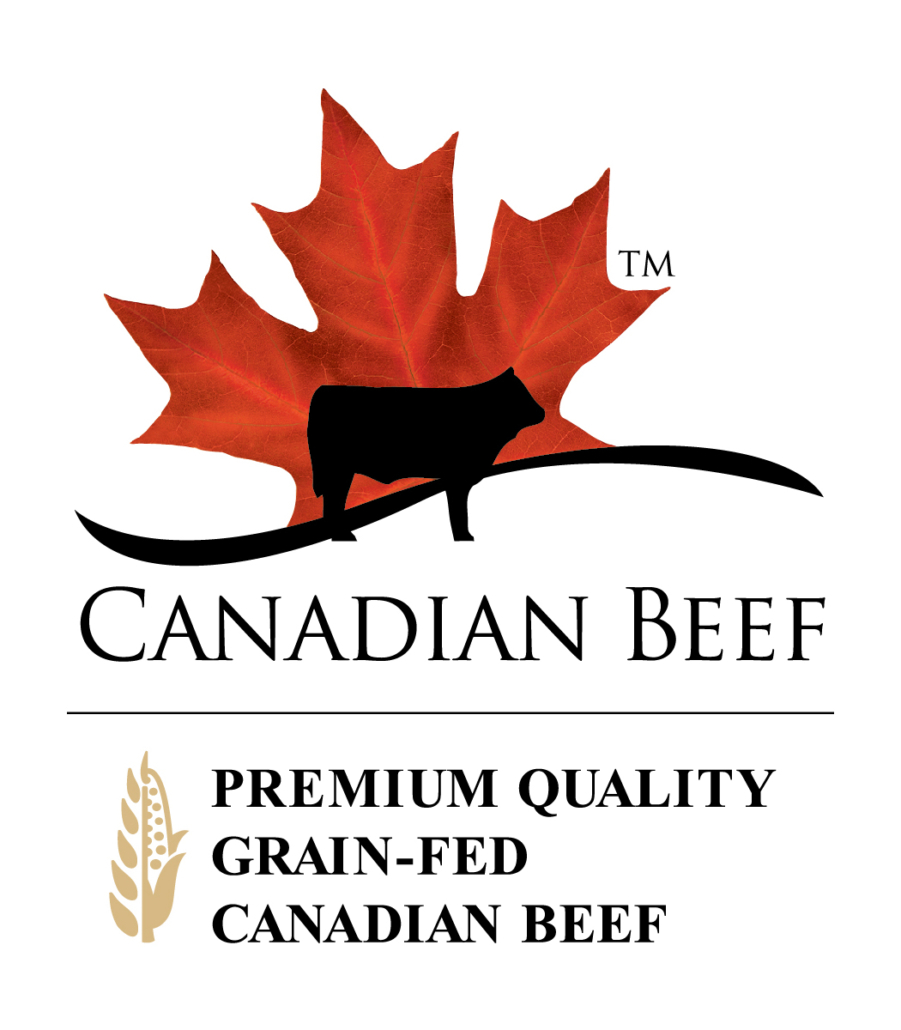McDonald’s ‘verified sustainable beef’ project steams ahead
Visit to Alberta from McDonald’s global CEO signals a sea change in the Canadian beef industry
By Alexis Kienlen
Published: June 24, 2015
McDonald’s Corporation president and CEO Steve Easterbrook (centre) and McDonald’s Canada president and CEO John Betts talk to Graeme Finn (right) on a tour of his ranch near Crossfield on June 9. Photo: McDonald’s Canada
It’s full speed ahead for McDonald’s ‘verified sustainable beef’ project.
The country’s largest buyer of beef is finishing up the first phase of its groundbreaking pilot project in Canada, and earlier this month the head of the global fast-food giant paid a visit to Alberta to get a first-hand look.
Recently appointed CEO Steve Easterbrook visited CL Ranches just west of Calgary and Southern Cross Livestock near Crossfield.
“Being as he’s brand spanking new to the job, the sustainability team, which is headquartered in Chicago, really wanted to give him the opportunity to see first hand what they’re up to here in Canada,” said Cherie Copithorne-Barnes, CEO of CL Ranches and chair of the Canadian Roundtable for Sustainable Beef.
“That was really important because he comes from more of a business side of things and really had no exposure whatsoever to what they’re doing with the sustainable pilot project.”
Easterbrook — who has vowed to “shape McDonald’s future as a modern, progressive burger company” — was keenly interested in what he saw and heard, said Jeffrey Fitzpatrick-Stilwell, senior manager of sustainability with McDonald’s Canada.
He pointed to Easterbrook’s visit to Southern Cross Livestock where rancher Graeme Finn has made soil health his No. 1 priority.
“They were right down there in the dirt, talking about how he preserves the topsoil and stuff,” said Fitzpatrick-Stilwell. “That’s really what we wanted to expose Steve to. It’s a lot more than the animal itself — beef sustainability goes beyond that. It’s about the grass that they’re grazing and the grains that are being grown for them. It’s a much bigger picture.”
Following the visit of Easterbrook — who was accompanied by World Wildlife Fund CEO Carter Roberts and top officials from McDonald’s and Cargill — the company announced that 19 Alberta ranches have been verified and 100 cattle organizations from B.C. to Ontario have signed up to participate in the next phase of the pilot project. Participants include producers, feedlots, and processors.
McDonald’s plans to end the pilot next April and hand off the project to the Canadian Roundtable for Sustainable Beef, whose membership includes beef producers, processors, retailers, restaurant chains, and environmental organizations.
“We haven’t decided as the Canadian Roundtable how it will keep progressing but at the end of April 2016, when the McDonald’s pilot project is over, if it just dies, then it has been an immense failure for the industry,” said Alberta rancher Bob Lowe, a member of the advisory committee on the McDonald’s pilot.
“There are a few of us who don’t plan on letting that happen if we have anything to say about it.”
Copithorne-Barnes took the opportunity to explain to Easterbrook how sustainability has long been a top priority at her family’s ranch, which was established in 1887.
She said the roundtable is up to the task of carrying on the work begun under the pilot project.
“The indicators that McDonald’s is developing are being shared with us, so we know the status on those indicators and we will be the ones who add the indicators from the life-cycle analysis (being done by consulting firm Deloitte),” said Copithorne-Barnes. “We will combine the best of both worlds. To be frank, we can’t be as finite as what McDonald’s was hoping to do. We have to have a basic plan that people are comfortable with answering and it’s not going to be too onerous.”
One of the key lessons for his boss was hearing that Canadian beef producers want “a credible way to talk about the positive things that they’re already doing,” said Fitzpatrick-Stilwell.
“The pilot is helping them verify best practices that they assumed they were already following, but it’s also helping them identify some areas of opportunity,” he said.
Copithorne-Barnes echoed that view, saying the verification process got her thinking differently about some of the things she’s doing on her ranch.
The McDonald’s pilot project is still looking for interested cattle producers. Any size of operation is welcome. For more information on the pilot project and how to participate, visit www.vsbpilot.ca.
Alexis Kienlen is a reporter for the Alberta Farmer Express





